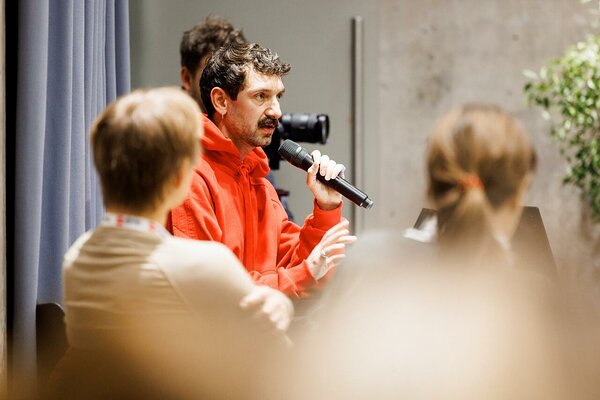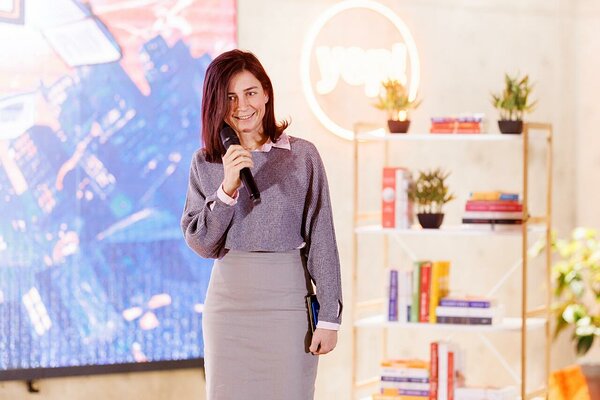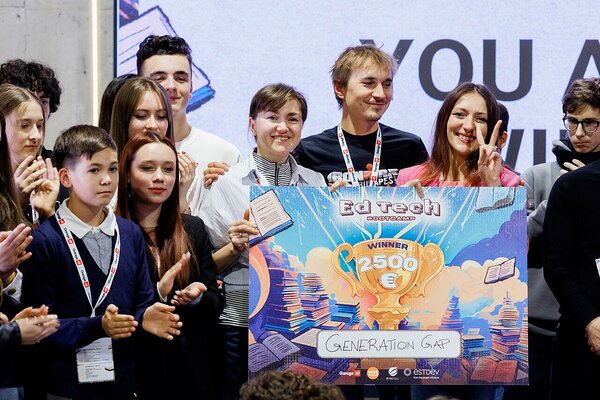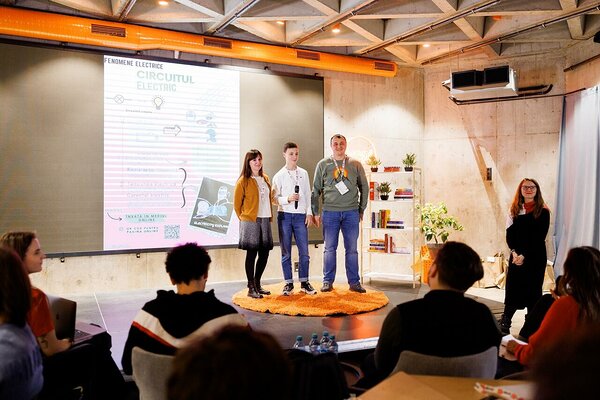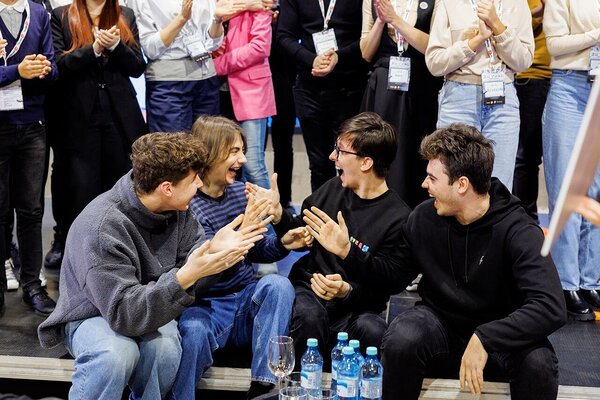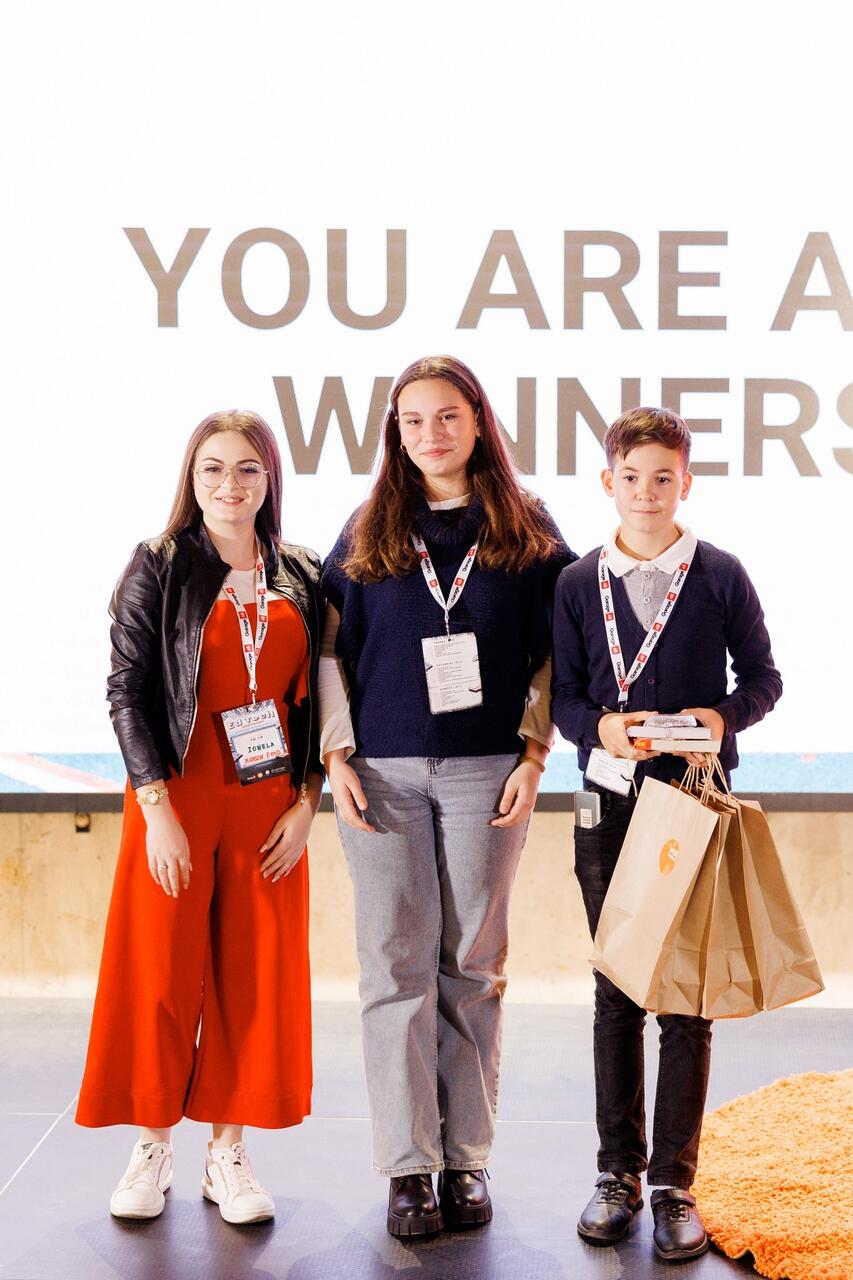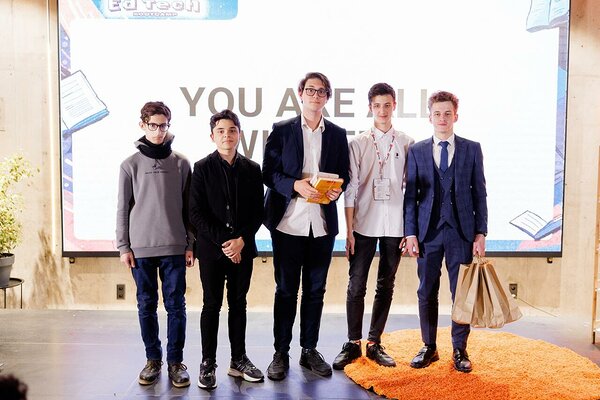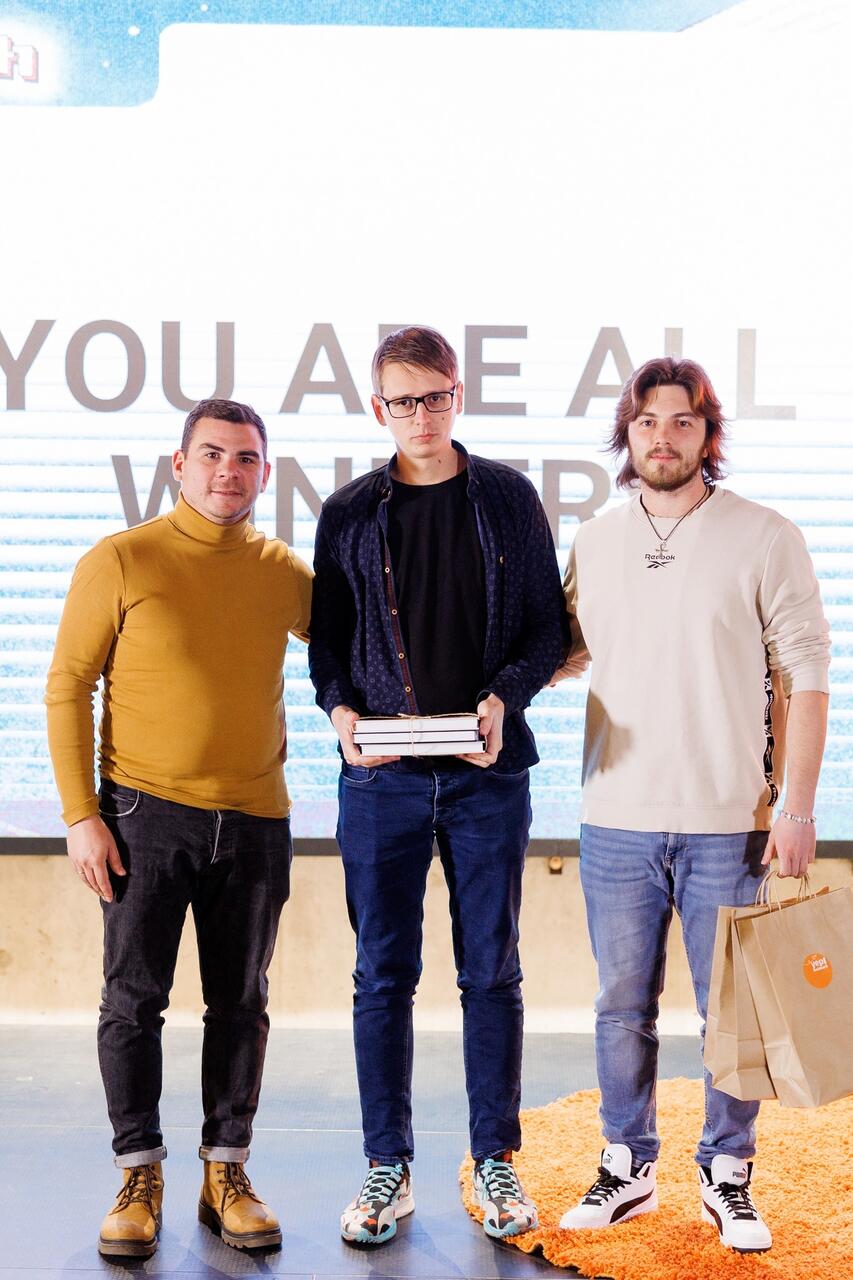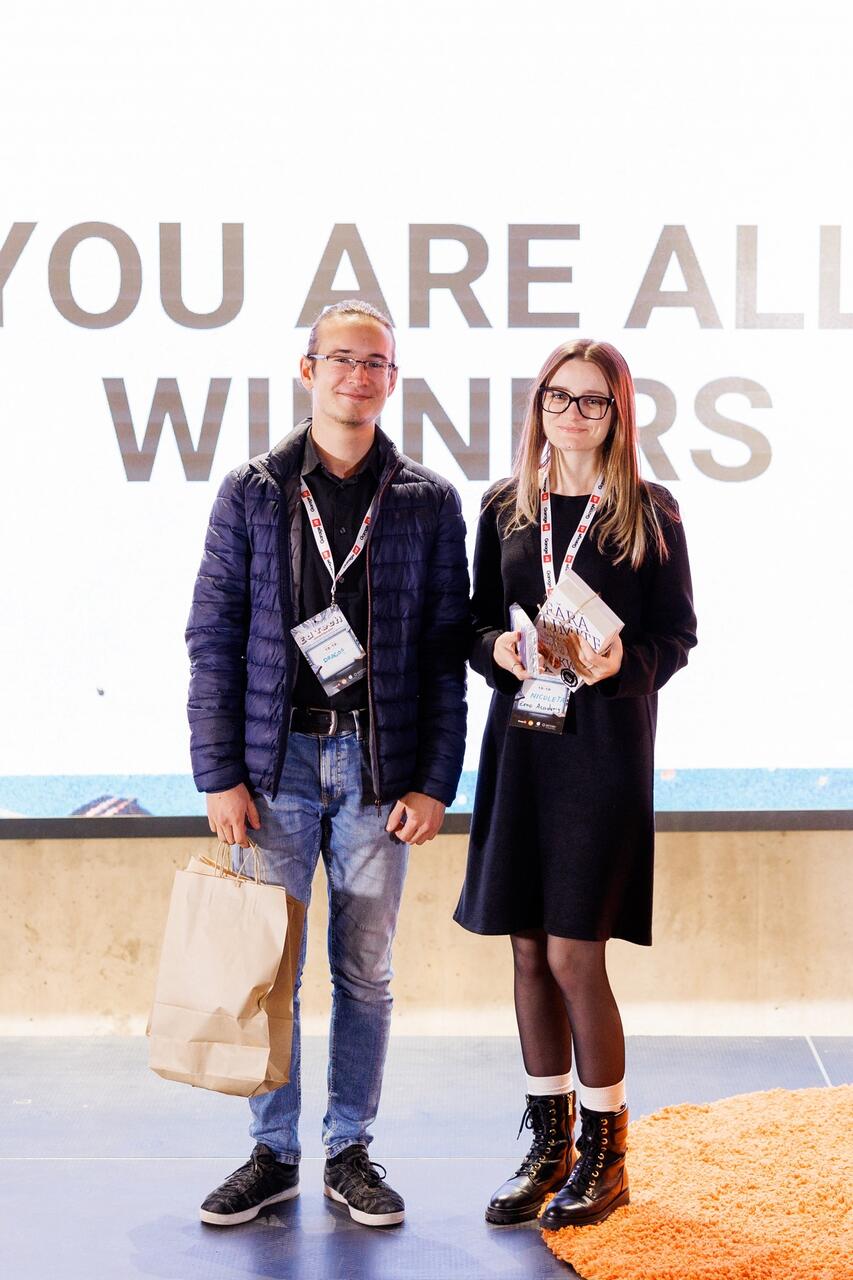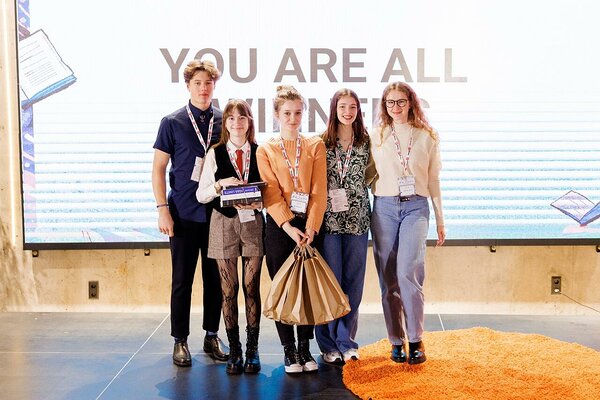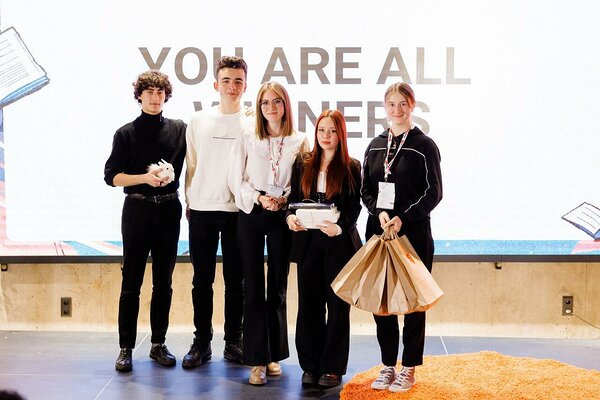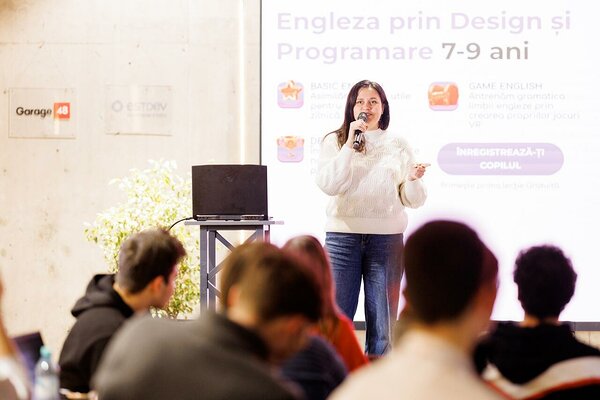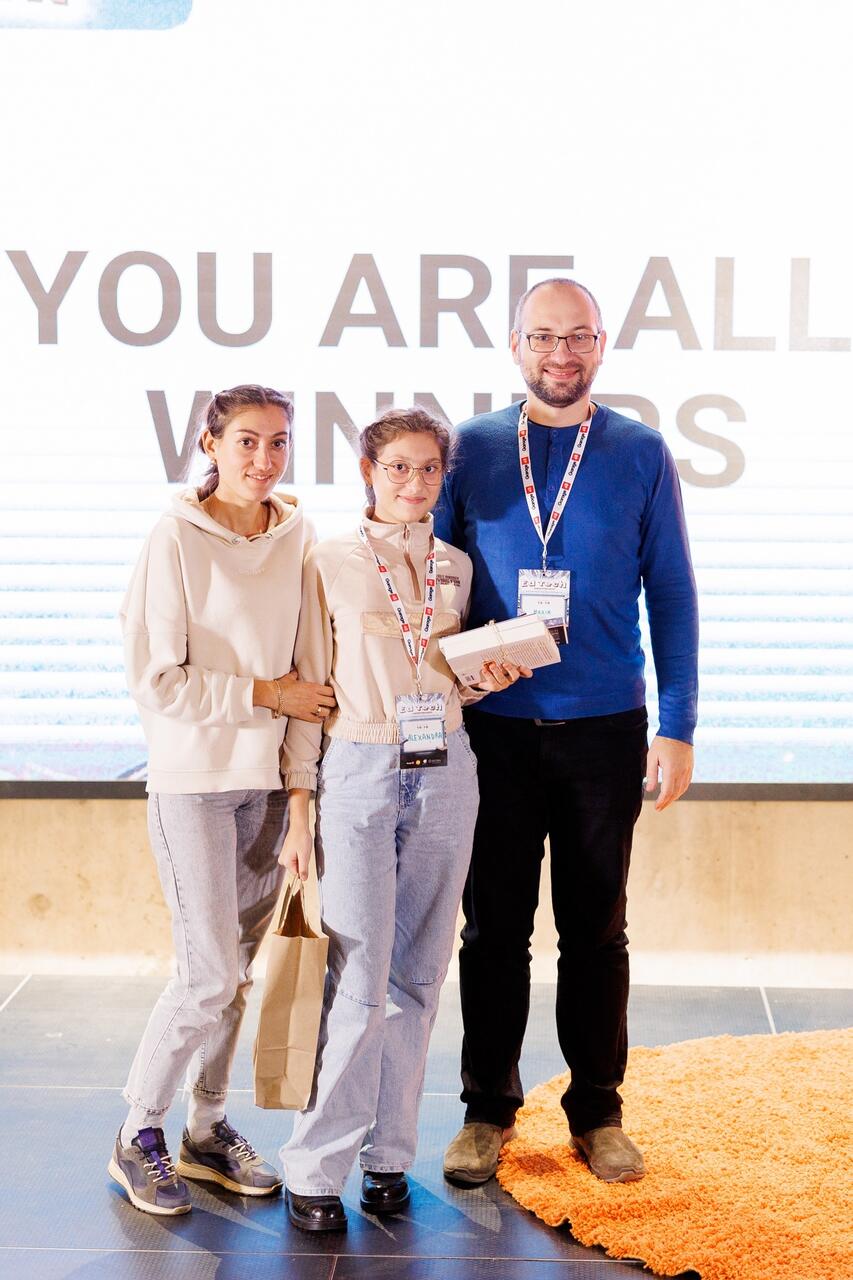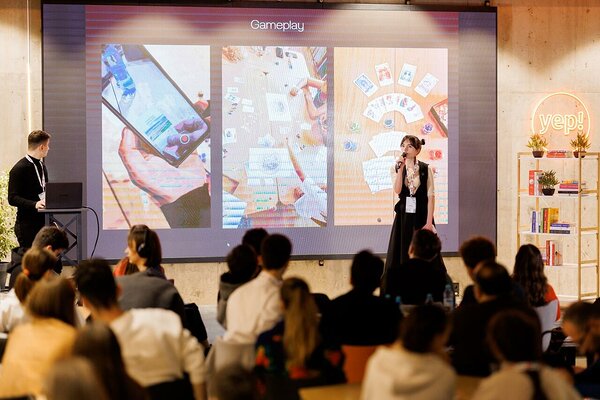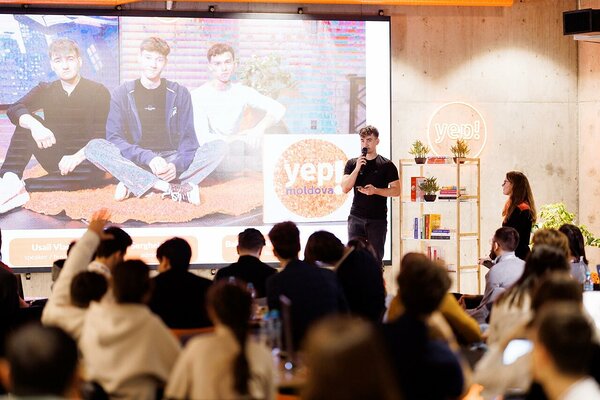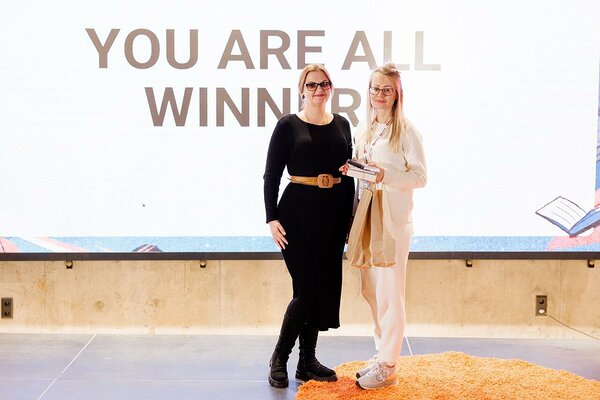Over the past five years, Garage48 has organized over 10 different programs together with YEP!Moldova. This includes hackathons, mentors’ masterclasses, and bootcamps. Although these were open to ideas from all topic areas, education was by far the most popular topic area. At every event, we saw at least a couple of solutions that focused on helping students better understand STEM topics, prepare for exams, and find a suitable option for further education. Despite the many challenges that the educational sector in Moldova is facing, it’s evident that there’s a deep drive and hunger among students to make the experience better for the next generations to come.
Current state of education in Moldova
The Moldovan education system has taken many steps forward, but unfortunately, the main challenges have stayed the same for many decades. For example, the percentage of youth who go to school is decreasing, the study materials are outdated, lesson plans haven’t been modernized, there is a huge discrepancy between the level of education in cities vs rural areas, and the education system is considered corrupted.
As a result, over half of the students in Moldova are only partially literate and their skills in STEM subjects are lacking compared to their peers in neighboring countries. It’s no wonder that many Moldovans decide to pursue higher education in Romania or Germany instead. Many of them don’t return back to Moldova, causing a diaspora of a young, educated population.
Education undoubtedly has a vital role in shaping young minds. What they learn in school not only influences their career path but also the way they see the world. As the future decision-makers in the public and private sectors, the future of Moldova is in their hands. Will Moldova be a democratic country, will they move towards joining the European Union, will young people have enough skills to enter the job market and will there be enough work in rural areas?
Workshops, prototyping and mentoring over 5 action-packed days
At the EdTech Bootcamp, participants could build a tech solution for anything related to education. Many chose to focus on problems that they saw in their everyday lives as students, teachers or parents. We were impressed by the diversity of the chosen topic areas.
Although we had quite a few teams fully formed before the start of the bootcamp, we kicked off the program with a virtual team formation where existing teams could recruit extra pairs of hands, and idea owners could gather a team around them. By the end of the day, we had 19 teams at the starting line, including two families who came to spend quality time together and build something cool during that. Our youngest participants were just 12 and 13 years old. They completely amazed everyone with their potential and progress!
Shortly after, we got started with the first workshop led by our host Mayri Tiido. Here, teams took a deep dive into the problem. They analyzed what the core of the problem is that they’re trying to solve, who it affects, what the potential solutions are, and finally, what the solution is that they will work with throughout the BootCamp.
Radion Cicic giving a prototyping workshop
On Thursday, the main focus was on defining the solution and validating it to make sure it’s necessary for the target audience. We had a Value Proposition Workshop led by Andiry Zaikin (YEP!Ukraine), a road plan workshop led by Viorica Cerbusca (YEP!Moldova), and a feedback session with EdTech experts Omari Loid (Praktikal), Pavel Cerbusca and Alex Leahu.
From Friday to Sunday, we gathered all of the participants onsite in Chisinau in Artcor. After a prototyping workshop with Radion Cicic where they learned the basics of Figma, an intensive weekend of work and mentoring began. As a result of the insights from workshops on the previous days, the teams were focused as soon as they came into the venue, knew what they were expected to do and got to work straight away.
At the finals on Sunday evening, 14 teams presented their demos, showcasing the work they did over the week. On top of the tech prototypes, mockups and websites that we see at every hackathon, many teams leveraged the mentors and workshops to present well-thought-out business plans and had their next steps lined up.
Marcela Nistor, Member of the Parliament in the Republic of Moldova gave an opening speech at the finals.
Meet the teams:
Winners of a 2500€ grant: Generation Gap
Family members from different generations struggle to keep up regular communication, especially when younger generations have moved abroad to pursue better higher education and career opportunities. Grandparents aren’t tech-savvy enough to use Facetime and other platforms, and youth don’t know what to talk to them about over the phone.
Team Generation Gap is building an app with a library of topics that grandparents and their grandkids can interact with, even when they’re worlds apart. The library includes fairytales and other books that families can read together, and interactive games like coloring that they can work on together. The interface is simple to use, so people from all ages could use it.
The team won a grant to continue the development of their project.
Team Generation Gap
Team members: Alexei Terzi, Alexandr Semco, Irina Pomazanovschi and Aygün Mamedova.
Winners of a 1500€ grant: MiniVolt
Many students struggle with understanding topics taught in physics classes. The lesson plans are outdated and teachers rarely use practical examples, which makes it difficult for students to grasp the theoretical concepts.
MiniVolt’s solution is a Smart Book for physics lessons. All topics are linked to video tutorials and experiments. Seeing the topic areas visually will help students understand and retain the knowledge.
The team won a grant to continue the development of their project.
Team MiniVolt
Team members: Irina Mesina, Valeriu Mesina and Petru Mesina.
Winners of a 1000€ grant: Plan Sight
A teacher’s workday doesn’t end when the last bell rings. At home, they have to grade students’ homework and tests, and work on lesson plans for the following day. This can add up to over 4h of extra work each day.
Plan Sight is a web tool that creates lesson and grade test plans using AI. All teachers have to do is choose the subject, topic, length of the class/test and which grade the students are in. The AI will do the rest and voila, a lesson plan or test is ready.
The team won a grant to continue the development of their project.
Team Plan Sight
Team members: Vladimir Stojoc, Marin Negai, Maxim Plămădeală and Eduard Balamatiuc.
Special mention: Robin Food
Robin Food was the youngest team at the bootcamp with a 12-year-old team lead. During the program, they pivoted their idea many times and managed to create a clickable Figma prototype for the finals. We were all very surprised by the team’s progress, positive attitude and openness to mentoring.
Their idea was an app that would motivate students to make healthier eating choices. The app educates users on what they should eat and has daily/weekly/monthly challenges for them to complete.
Team Robin Food
Team members: Xenia, Andreea and Vitalie.
Team Wise Choice
Many teens choose a university course without knowing whether the profession suits them. Wise Choice built a website where high school students can take a career aptitude test and will be matched with organizations where they can shadow a worker. This will give them insight into whether they like the job and help them make smarter decisions for their higher education.
Team Wise Choice
Team members: Anton Belîi, Leonid Dodon, Ivan Capraru, Vladislav Raducan and Maxim Perţev.
Team Smartest
High school students lack tools to help them prepare for final exams. Smartest built a web application that simulates the tests they take at the end of high school. After taking the test, students have the opportunity to get feedback from professors for a small fee. Smartest will be trialled as an official test-taking platform in a rural area of Moldova from next year!
The website is already live here: https://smartest.md/
Team Smartest
Team members: Dmitrii Albot, Mihail Boaghe and Daniel Ungureanu.
Team Zeno Academy
Finding a trustworthy tutor in the CEE region is a huge challenge. Usually, tutors are sourced from Facebook groups or some existing websites, but there’s no guarantee of quality.
Zeno Academy is building an online tutoring platform where students connect with expert tutors for a premium, accessible and trustworthy learning experience. In addition to getting help with school subjects, users can learn about topic areas that aren’t in the mandatory curriculum.
The team has been working on the solution for a couple of years already. They won our Empowering Youth vol 5 Hackathon in October 2022 as team ToUtoring and have already raised funding. While part of the team was taking part in the bootcamp, the founder was networking at Web Summit.
Team Zeno AcademyTeam members: Dragos Brinca, Nicoleta Mogaldea and Valeriu Șeremet.
Team Justice League
Many young people leave Moldova due to lacking opportunities in career and further education. Additionally, as they don’t know how the democratic system works, they don’t know how they could make a change in Moldova for future generations.
Team Justice League is building a digital tool called the Digital Youth Parliament. This is a virtual simulation of the parliamentary system where young people can efficiently discuss, debate and express their own political views based on the current situation of the country.
Team Justice League
Team members: Vlada Zastavnețchi, Mihaela Maxim, Jasmina Ciobanaș, Mădălina Lupușor and Ștefan-Paul Ștefîrță.
Team FutureFuse
There is a large gap between theoretical knowledge in schools and the skills that are needed in the business world. Team FutureFuse is working on bridging that gap by building a platform that matches students and graduates with internship opportunities or junior positions at various companies.
Team FutureFuse
Team members: Mădălina Spivacencu, Stefan Guzun, Daniela Stog, Stefan Gînju, Alexandru Cujba , Sergiu Manic, Rafael Grosu and Alexa Iachim
Team Wild Mind English
80% of parents hear that their children say that they either don't like their lessons or are bored during them. Wild Mind English has build a set of XR games where students can learn English through playing games. The games don’t need VR Goggles, but rather work by connecting a smartphone to a headset.
Check out their games: https://wildmindenglish.com/
Team Wild Mind English
Team members: Olesea Nistor, Ana Tischevici and Vlada Băluță
Team Escoala
This team’s project was born out of a personal need. 14-year-old Alexandra was missing a good solution for getting easy access to her school timetable and homework reminders. She teamed up with her parents to build an e-school platform where both students and parents can get an overview of what’s going on in school
Team Escoala
Team members: Maxi Grosul, Alexandra Grosul and Marina Motelica.
Team Guardians of Gaia
Guardians of Gaia is a board game that teaches players about sustainability. The team had already built a prototype of the physical game and added augmented reality functionalities during the BootCamp.
Team members: Maria Ginga, Alex Jolea and Eugeniu Negru
Team Achievers
Money management is a huge challenge for students as most spend their pocket money on impulse purchases and don’t think about saving. Team Achievers built a website that educates students on how to invest, save and spend their money wisely. After working through theoretical parts, users can test their knowledge by taking a quiz and buying/selling stocks with virtual money.
Team Achievers
Team members: Oprea Serghei, Usatîi Vlad and Babcinetchii Vadim.
Team ChatNow
This team was also tackling the challenge of helping students make the right decision for pursuing further education. ChatNow’s idea was to build a chatbot that gives information about different courses, helps find links on universities’ websites, and supports the application process.
Team ChatNow
Team members: Anna Volosiuc and Anna Socolova
If you want to see more of the EdTech Bootcamp:
👉🏻 Check out photos from Day 3, Day 4 and Day 5.
The EdTech Bootcamp was organized by Garage48 and YEP! Moldova with the financial support of The Estonian Centre for International Development (ESTDEV).
